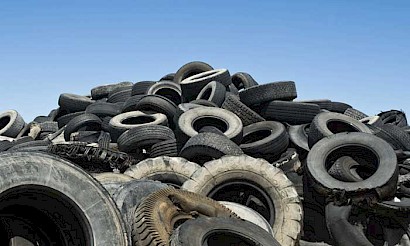India to prohibit end-of-life imports for pyrolysis
 The Indian government released a draft document in January 2022 that includes recycling rates for the years 2022-23.
The Indian government released a draft document in January 2022 that includes recycling rates for the years 2022-23.
The National Green Tribunal was quoted in the initial report as indicating that India landfilled 275,000 metric tonnes of tires each year. According to the Automotive Tire Manufacturers Association, as much as 60% of India’s tire arisings are landfilled or burned. India’s tire recyclers, on the other hand, disputed this.
According to the draft document, the EPR Scheme will go into effect in the years 2022–2023. It affects businesses that engaged in “any activity of production/manufacturing of new tires, import of new/waste tires and recycling of waste tires”.
According to the draft document, a Producer is “any entity who (i) manufactures new tires, (ii) imports new tires; or/and (iii) imports waste tires”.
While the regulations do not ban the manufacture of Pyrolysis oil/char or recovered Carbon Black, for end-of-life tire importers this means that:
- The EPR obligation for end-of-life tire importers in year (Y) will be 100% of the tires imported in that year.
- The import of end-of-life tires for the purpose of producing pyrolysis oil/ char is prohibited.
If India enforces strict regulations without exception, those who export pyrolysis tires to India will either have a sharp drop in demand or will stop selling to India altogether.
There are already cases where containers are returned or dumped at the port due to refusals to pay the customs fees. This will be standard when EPR is introduced.
The largest market for end-of-life tires tires in the West is closing and restricting access. As tires flood into other markets, how soon will they close the door?
In the end, the United Kingdom, Europe, and the United States will have to find new ways to dispose of their end-of-life tires. Perhaps this will spur investment and support for domestic recycling.
You can return to the main Market News page, or press the Back button on your browser.

